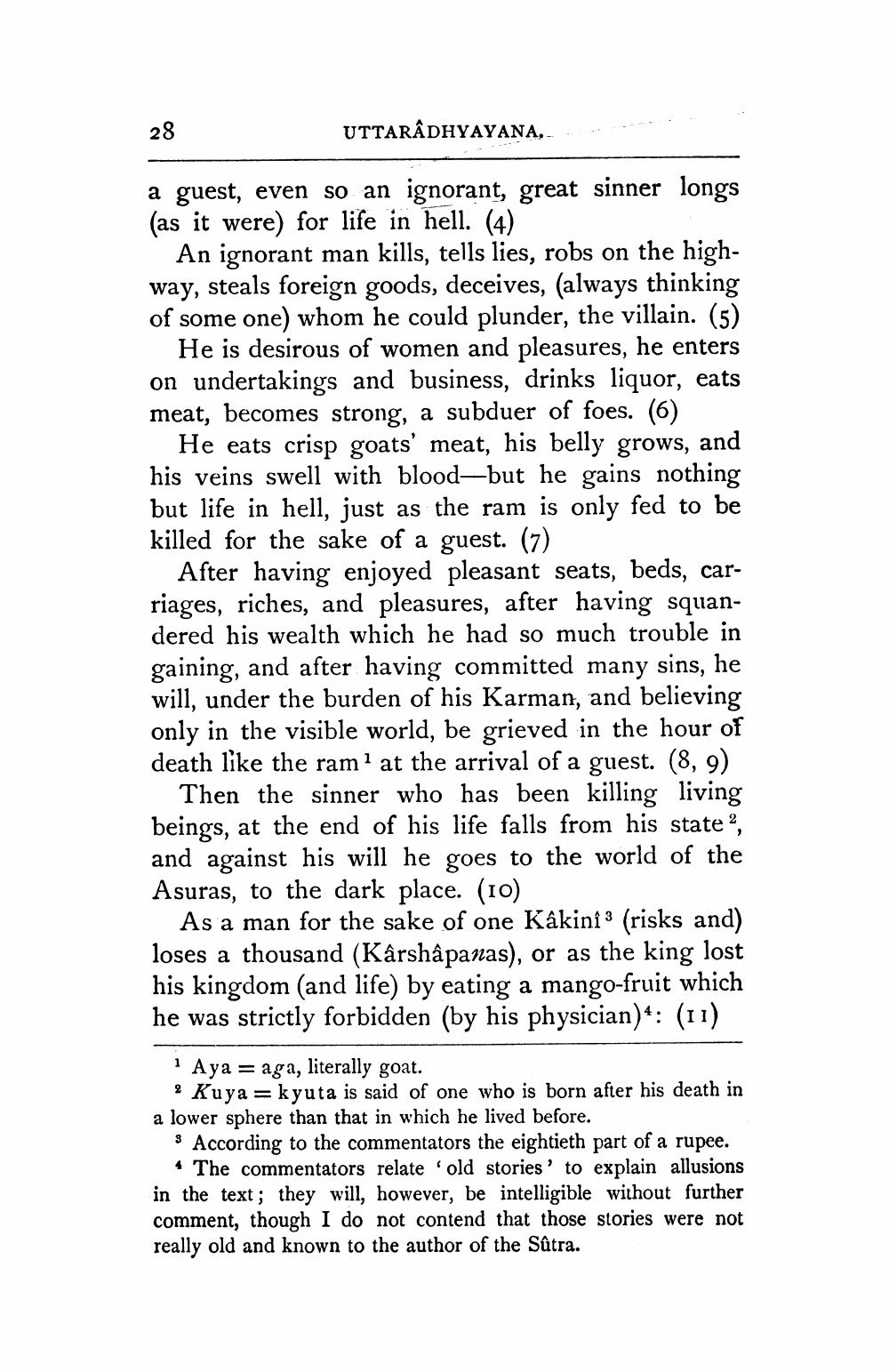________________
28
UTTARADHYAYANA.- .
a guest, even so an ignorant, great sinner longs (as it were) for life in hell. (4)
An ignorant man kills, tells lies, robs on the highway, steals foreign goods, deceives, (always thinking of some one) whom he could plunder, the villain. (5)
He is desirous of women and pleasures, he enters on undertakings and business, drinks liquor, eats meat, becomes strong, a subduer of foes. (6)
He eats crisp goats' meat, his belly grows, and his veins swell with blood—but he gains nothing but life in hell, just as the ram is only fed to be killed for the sake of a guest. (7)
After having enjoyed pleasant seats, beds, carriages, riches, and pleasures, after having squandered his wealth which he had so much trouble in gaining, and after having committed many sins, he will, under the burden of his Karman, and believing only in the visible world, be grieved in the hour of death like the ram at the arrival of a guest. (8, 9)
Then the sinner who has been killing living beings, at the end of his life falls from his state 2, and against his will he goes to the world of the Asuras, to the dark place. (10)
As a man for the sake of one Kâkini(risks and) loses a thousand (Kârshậpanas), or as the king lost his kingdom (and life) by eating a mango-fruit which he was strictly forbidden (by his physician)*: (11)
Aya = aga, literally goat. ? Kuya = kyuta is said of one who is born after his death in a lower sphere than that in which he lived before
* According to the commentators the eightieth part of a rupee.
• The commentators relate 'old stories' to explain allusions in the text; they will, however, be intelligible without further comment, though I do not contend that those stories were not really old and known to the author of the Sûtra.




